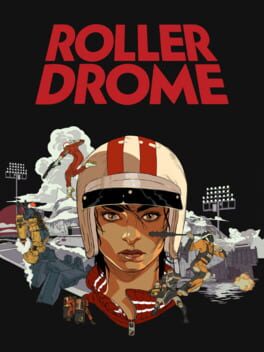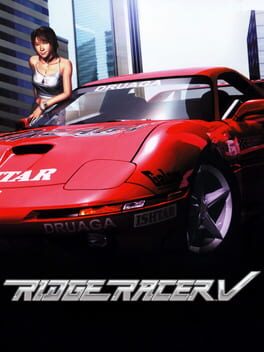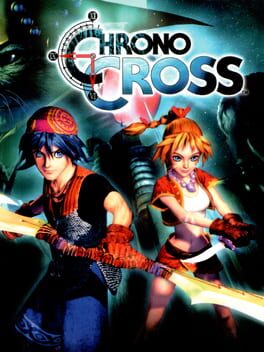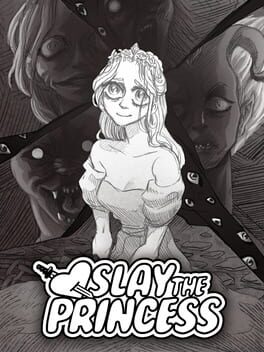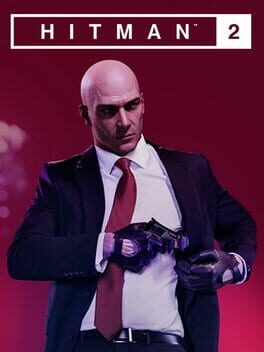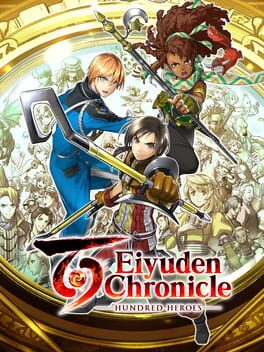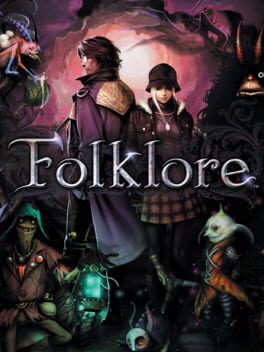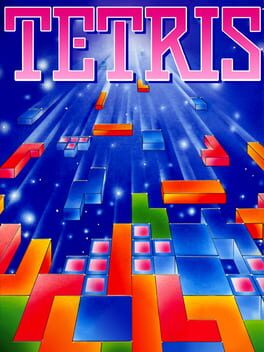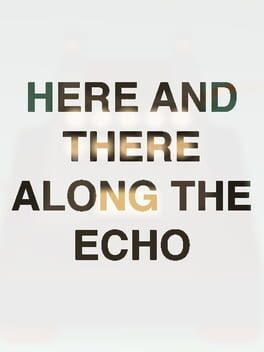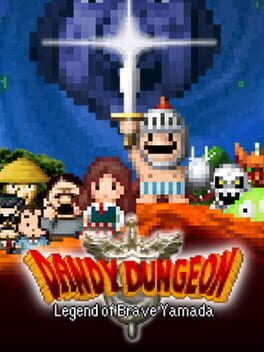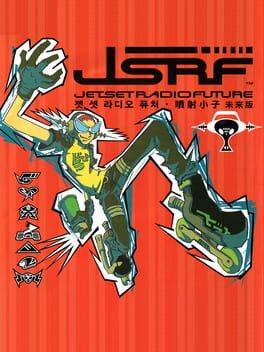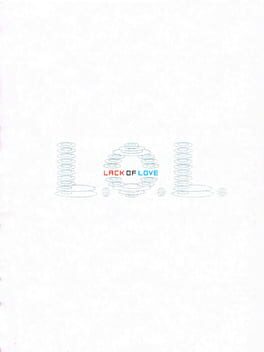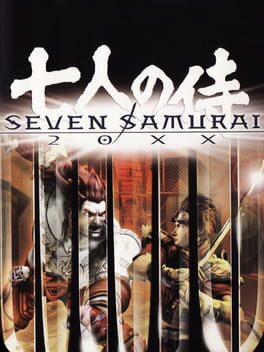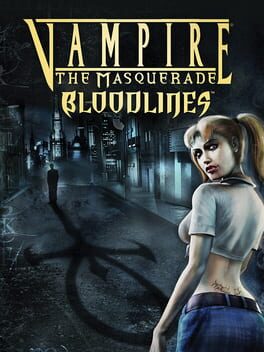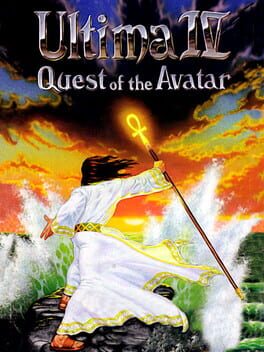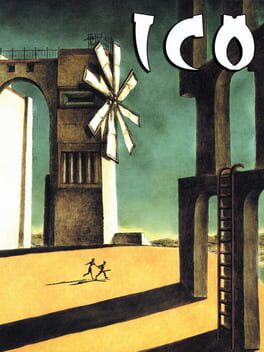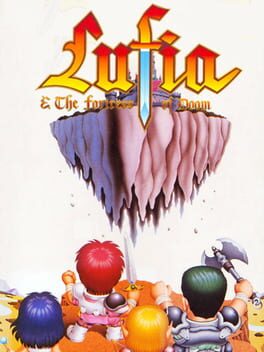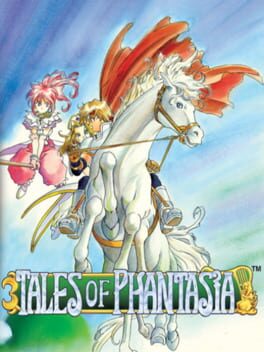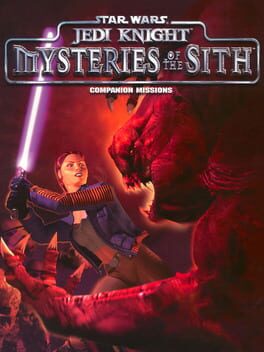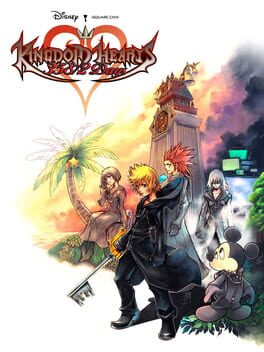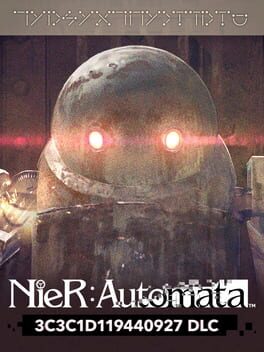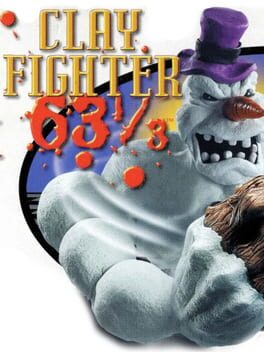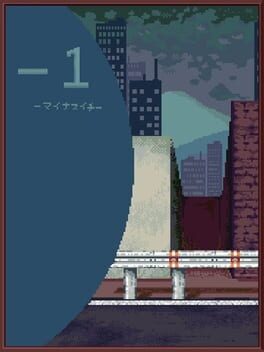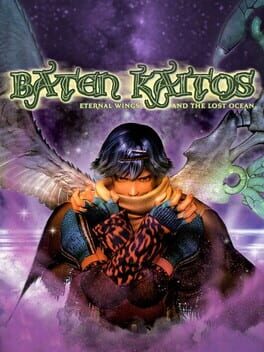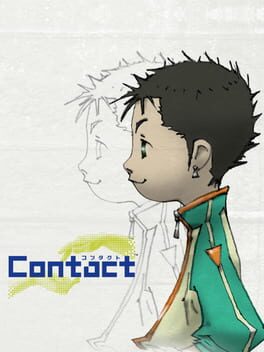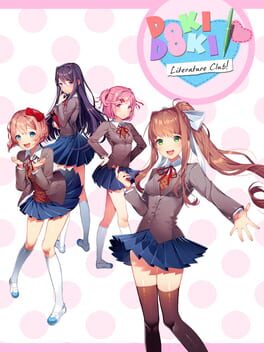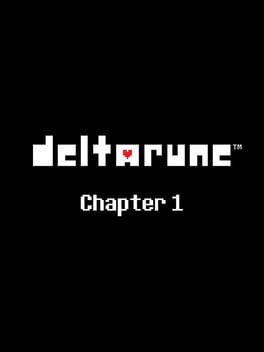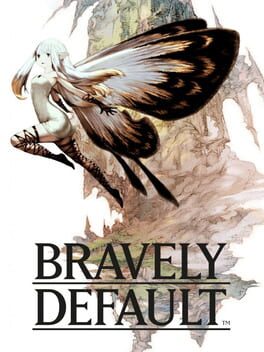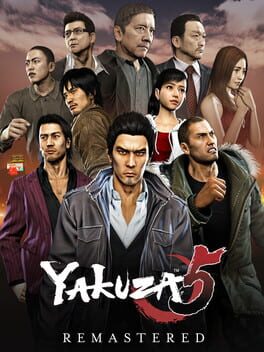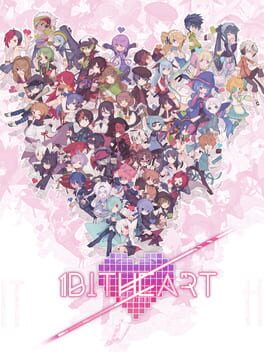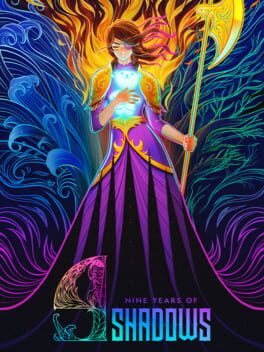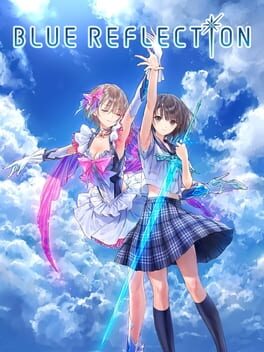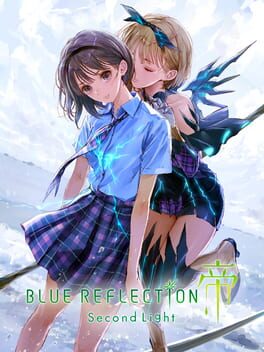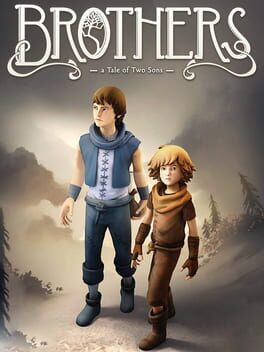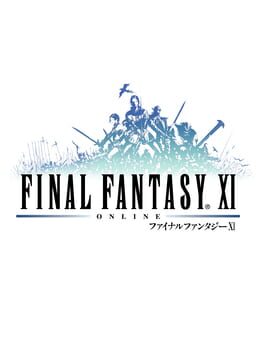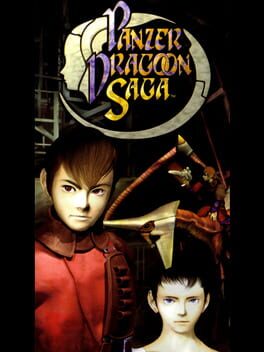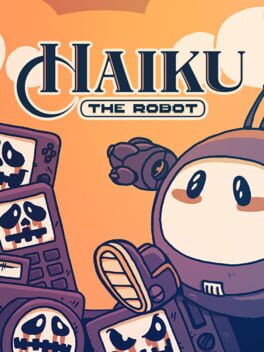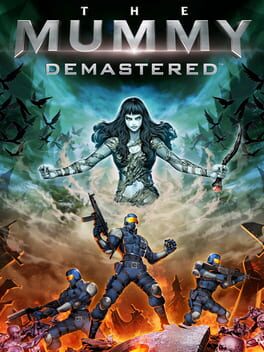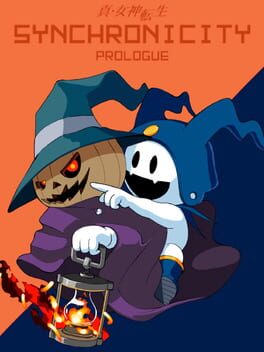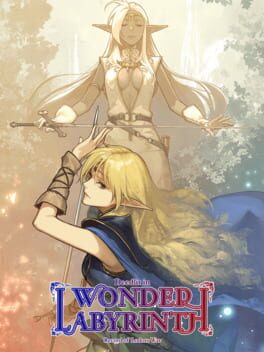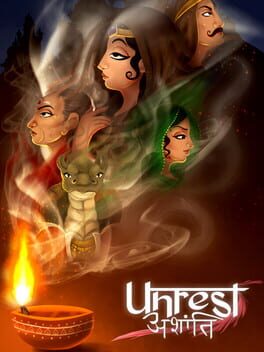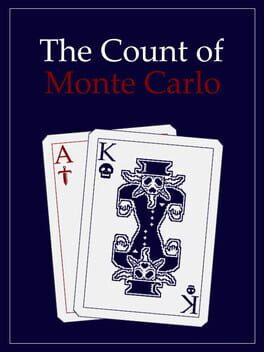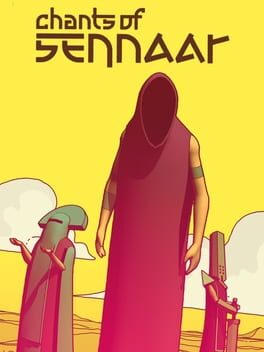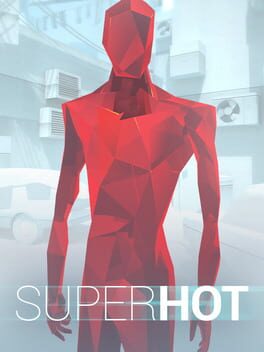aglhrm
BACKER
192 reviews liked by aglhrm
Rollerdrome
2022
There's a eerie slasher/thriller film vibe to it that I truly adore. It has a THPS old school style with goals to be made under a time limit that matches well with the killing mechanic.
I think that it would unlock a PVP contest later on, exploring more and more regarding the players backstory, but maybe that's a good hook for a sequel (that we may never get it since latest Roll7 news).
I think that it would unlock a PVP contest later on, exploring more and more regarding the players backstory, but maybe that's a good hook for a sequel (that we may never get it since latest Roll7 news).
Ridge Racer V
2000
i don't really enjoy cars, i don't think i understand them. i don't get the excitement, i don't get the aesthetics, i can find beauty in a car design, but i don't get a rush out of it. simply put, i'm not a part of its culture
i am, however, gonna dig any car that has "DRUAGA" written in big bold letters on top of it's paint an immense amount. i'm sure this game is better for people who actually do like these machines, but i was genuinely content playing it. listen, Namco was king once. way before Atlus could start to even concede it's proven true red and black combo. this here is elegant, provocative and powerful, masterclass in design, really, in every way. nothing else was doing it like videogames were and much less like Namco was.
i honestly love how this game controls, i love how there's only two (three technically) different locations with tons of variations on how they're raced, i love the soundtrack, i love picking colors for my car, love the duel system, love the obnoxious DJ, i especially love driving at night it feels like everything to me. winning feels good, this game will make you tense and it will also make you relaxed because believe it or not there is enough time to appreciate the scenery.
i don't like cars but maybe if i had ridge racer v during my formative years i would have played racing games other than mario kart. or at the very least more ridge racer
i am, however, gonna dig any car that has "DRUAGA" written in big bold letters on top of it's paint an immense amount. i'm sure this game is better for people who actually do like these machines, but i was genuinely content playing it. listen, Namco was king once. way before Atlus could start to even concede it's proven true red and black combo. this here is elegant, provocative and powerful, masterclass in design, really, in every way. nothing else was doing it like videogames were and much less like Namco was.
i honestly love how this game controls, i love how there's only two (three technically) different locations with tons of variations on how they're raced, i love the soundtrack, i love picking colors for my car, love the duel system, love the obnoxious DJ, i especially love driving at night it feels like everything to me. winning feels good, this game will make you tense and it will also make you relaxed because believe it or not there is enough time to appreciate the scenery.
i don't like cars but maybe if i had ridge racer v during my formative years i would have played racing games other than mario kart. or at the very least more ridge racer
Chrono Cross
1999
Another entry from my List of the Thirty-Five Best Games I Played in 2023, now available à la carte:
On Chrono Cross (Or — "How I Developed a Palate for Poison")
My grandmother doesn’t live in Vermont anymore. A couple years ago, she and I went back there together and rented a place to relive those days. Naturally, the rental had some similarities to her old place. We drove around, taking in familiar sights, waiting for the rest of the family to join us. I fired up Chrono Cross for the first time one evening, and promptly came down with a case of water poisoning.
If I believed in omens, I’d take that as a bad one. I touched a game about a character who finds himself in an eerie facsimile of home, itself the strange and twisted sequel of a beloved favorite, and it left me hurling into a toilet. The water supply we’d been drawing from was unfit for human consumption. I spent the recovery period with Chrono Trigger and Dragon Quest V on DS, beneath the more familiar ceiling of a family friend’s house. I’d later start writing a non-review about how I didn’t have to play Chrono Cross, eschewing the pretense of being some aspiring member of the Backloggd “videogame intelligentsia.” I don’t need “cred,” right??
Well.
I played Chrono Trigger again in 2023 at least twice, depending on how you define a “playthrough”. The first was because I’d just finished Final Fantasy X and wanted to make some unfair comparisons. The second was because I was three-fourths of the way through Chrono Cross and…wanted to make some unfair comparisons. Even in the thick of it, I was avoiding the inevitable.
So…About the Game
Cross makes every effort possible to be anything but a clean, obedient sequel to its father. And you know what? Good. Trigger’s development was predicated on originality, and should likewise be followed up with another adventurous convention-breaker. The “Chrono Trigger 2” advocated by the likes of Johnny Millennium doesn’t appeal to me; lightning doesn’t strike twice. Still, Cross is Trigger’s opposite even in ways it really shouldn’t be.
With the exception of its original PSX audiovisual presentation, some of the most colorful and lush I’ve ever experienced, just about every one of its ideas is noncommittal and indecisive. Monsters appear on the overworld again, but you won’t find anything as deliberately paced as Trigger’s level design to elevate this from the status of "mild convenience." The conceit of its combat system is worth exploring – characters deal physical damage to build spell charges — but the deluge of party members and fully customizable spell slots amounts to a game that would’ve been impossible to balance. Level-ups are only granted during boss fights, and the gains acquired in normal battles aren’t worth the effort, so the whole thing snaps in half not 50% of the way through. It isn’t measured to account for the fact that you can take down just about everything with an onslaught of physical attacks by the midgame.
Then again, if the combat had been as challenging as the story is bizarre, I don’t know that I would’ve stuck around all the way to the end. Maybe I wouldn’t have been as gung-ho about swapping party members around and collecting them like Pokémon. Amid its spectacle and ambition, the wonder of sailing the seas and crossing dimensions, I left most events unsure of what to think, positive or negative. It wasn’t ambivalence, exactly.
SPOILERS AHEAD
It’s like this: Fairly early on, you’re given an infamous decision. One of the major protagonists, Kid, is dying of a magically-inflicted illness, and the only antidote is Hydra Humour. If you agree to go after it, you’ll find that it can only be extracted from the Guardian of the Marshes, and its death would mean the deterioration of the ecosystem which relies upon it. The dwarves and all other life in this biome would be put at risk. I weighed my options. I decided to reload a save and refuse the quest. Kid wouldn’t want her life to come at the cost of hundreds, if not thousands of others. So I start down the opposite path…
…Only to find that, in this route, a squad of human soldiers kills the hydra anyway, leaving the dwarves to flee their uninhabitable home to lead a genocidal attack on the fairies’ island to claim it for themselves. Jesus. The dwarves’ manic strangeness did little to downplay how chilling the result of my little coin flip was.
After an effort to defend the few remaining fairies and keep the dwarves at bay — leaving the survivors to process the turmoil of their new reality — after all that…it turns out that Kid is fine. She got over the illness by herself, offscreen.
For as many words as it goes on to spew, no moment of my Chrono Cross playthrough spoke louder than this one. Chrono Trigger’s party was faced with a choice — allow Lavos to erupt from the planet and drive everything to the brink of extinction, or risk everything to prevent the apocalypse. It’s a thousand years away, these three characters can live out the rest of their days comfortably and never have to concern themselves with it. They’re shown an End of Time, proof that the universe won’t last regardless of what they do, and still decide to fight on behalf of the world. It’s worth trying, if only to preserve a few more precious seconds of life for their descendants and their home.
Chrono Cross (eventually) reveals that their meddling allowed Lavos to become an even more devastating monster. We can defeat it, but who can say that won’t result in an even more cataclysmic fate? Because he lives and breathes, Serge’s timeline is worse off. It’s hard to tell whether that’s lore nonsense, self-flagellation on the game’s part, or genuine philosophizing. It wouldn’t be alone in that. As a chronic “downer,” I can’t help wondering if there’s no way to survive in the modern world without directly or indirectly participating in human suffering.
Maybe Writer/Director Masato Kato couldn’t either. He seems bent on reminding the player that they are but a speck in a cosmic puzzle, and there’s no defiant “so what?” answer to that problem. Even the thing we’ve been led to accomplish isn’t revealed until seconds before the finale of this forty hour game (and that's NOT a joke). You can’t see the credits without recognizing that it’s an unfortunate victim of mismanagement and a little too much Evangelion, but that doesn’t mean it fails to resonate. I don't think there’s another game that so thoroughly captures the existential confusion of being alive.
On Chrono Cross (Or — "How I Developed a Palate for Poison")
My grandmother doesn’t live in Vermont anymore. A couple years ago, she and I went back there together and rented a place to relive those days. Naturally, the rental had some similarities to her old place. We drove around, taking in familiar sights, waiting for the rest of the family to join us. I fired up Chrono Cross for the first time one evening, and promptly came down with a case of water poisoning.
If I believed in omens, I’d take that as a bad one. I touched a game about a character who finds himself in an eerie facsimile of home, itself the strange and twisted sequel of a beloved favorite, and it left me hurling into a toilet. The water supply we’d been drawing from was unfit for human consumption. I spent the recovery period with Chrono Trigger and Dragon Quest V on DS, beneath the more familiar ceiling of a family friend’s house. I’d later start writing a non-review about how I didn’t have to play Chrono Cross, eschewing the pretense of being some aspiring member of the Backloggd “videogame intelligentsia.” I don’t need “cred,” right??
Well.
I played Chrono Trigger again in 2023 at least twice, depending on how you define a “playthrough”. The first was because I’d just finished Final Fantasy X and wanted to make some unfair comparisons. The second was because I was three-fourths of the way through Chrono Cross and…wanted to make some unfair comparisons. Even in the thick of it, I was avoiding the inevitable.
So…About the Game
Cross makes every effort possible to be anything but a clean, obedient sequel to its father. And you know what? Good. Trigger’s development was predicated on originality, and should likewise be followed up with another adventurous convention-breaker. The “Chrono Trigger 2” advocated by the likes of Johnny Millennium doesn’t appeal to me; lightning doesn’t strike twice. Still, Cross is Trigger’s opposite even in ways it really shouldn’t be.
With the exception of its original PSX audiovisual presentation, some of the most colorful and lush I’ve ever experienced, just about every one of its ideas is noncommittal and indecisive. Monsters appear on the overworld again, but you won’t find anything as deliberately paced as Trigger’s level design to elevate this from the status of "mild convenience." The conceit of its combat system is worth exploring – characters deal physical damage to build spell charges — but the deluge of party members and fully customizable spell slots amounts to a game that would’ve been impossible to balance. Level-ups are only granted during boss fights, and the gains acquired in normal battles aren’t worth the effort, so the whole thing snaps in half not 50% of the way through. It isn’t measured to account for the fact that you can take down just about everything with an onslaught of physical attacks by the midgame.
Then again, if the combat had been as challenging as the story is bizarre, I don’t know that I would’ve stuck around all the way to the end. Maybe I wouldn’t have been as gung-ho about swapping party members around and collecting them like Pokémon. Amid its spectacle and ambition, the wonder of sailing the seas and crossing dimensions, I left most events unsure of what to think, positive or negative. It wasn’t ambivalence, exactly.
SPOILERS AHEAD
It’s like this: Fairly early on, you’re given an infamous decision. One of the major protagonists, Kid, is dying of a magically-inflicted illness, and the only antidote is Hydra Humour. If you agree to go after it, you’ll find that it can only be extracted from the Guardian of the Marshes, and its death would mean the deterioration of the ecosystem which relies upon it. The dwarves and all other life in this biome would be put at risk. I weighed my options. I decided to reload a save and refuse the quest. Kid wouldn’t want her life to come at the cost of hundreds, if not thousands of others. So I start down the opposite path…
…Only to find that, in this route, a squad of human soldiers kills the hydra anyway, leaving the dwarves to flee their uninhabitable home to lead a genocidal attack on the fairies’ island to claim it for themselves. Jesus. The dwarves’ manic strangeness did little to downplay how chilling the result of my little coin flip was.
After an effort to defend the few remaining fairies and keep the dwarves at bay — leaving the survivors to process the turmoil of their new reality — after all that…it turns out that Kid is fine. She got over the illness by herself, offscreen.
For as many words as it goes on to spew, no moment of my Chrono Cross playthrough spoke louder than this one. Chrono Trigger’s party was faced with a choice — allow Lavos to erupt from the planet and drive everything to the brink of extinction, or risk everything to prevent the apocalypse. It’s a thousand years away, these three characters can live out the rest of their days comfortably and never have to concern themselves with it. They’re shown an End of Time, proof that the universe won’t last regardless of what they do, and still decide to fight on behalf of the world. It’s worth trying, if only to preserve a few more precious seconds of life for their descendants and their home.
Chrono Cross (eventually) reveals that their meddling allowed Lavos to become an even more devastating monster. We can defeat it, but who can say that won’t result in an even more cataclysmic fate? Because he lives and breathes, Serge’s timeline is worse off. It’s hard to tell whether that’s lore nonsense, self-flagellation on the game’s part, or genuine philosophizing. It wouldn’t be alone in that. As a chronic “downer,” I can’t help wondering if there’s no way to survive in the modern world without directly or indirectly participating in human suffering.
Maybe Writer/Director Masato Kato couldn’t either. He seems bent on reminding the player that they are but a speck in a cosmic puzzle, and there’s no defiant “so what?” answer to that problem. Even the thing we’ve been led to accomplish isn’t revealed until seconds before the finale of this forty hour game (and that's NOT a joke). You can’t see the credits without recognizing that it’s an unfortunate victim of mismanagement and a little too much Evangelion, but that doesn’t mean it fails to resonate. I don't think there’s another game that so thoroughly captures the existential confusion of being alive.
Slay the Princess
2023
Quando o jogo diz, logo de cara, que é uma história de amor, essa deve ser a única coisa sincera que ele diz: um único pingo de cor caindo de um conta-gotas. A partir daí -- do momento em que o Narrador diz que seu objetivo é matar a princesa, e o momento em que a Princesa resiste -- tudo é um espelho, e faz questão de nunca te deixar esquecer disso.
A cada passo, Slay The Princess vai te lembrar que está acontecendo como está acontecendo por causa das suas escolhas, e nada existe substancialmente fora delas. O mundo é sem forma, fractal, e existe para ser salvo ou destruído. Não existe uma diegese propriamente dita, ou não por muito tempo: a Princesa é o que você faz dela, as vozes que te acompanham são o que a princesa faz de você em resposta. Existe uma análise psicanalítica para ser feita por alguém, mas eu não tenho muito interesse nisso: afinal, o jogo se faz tanto um espelho que se torna plenamente arbitrário, como se você estivesse diante de uma folha de papel. O que você desenhar te reflete de alguma forma, mesmo se você escolher conscientemente a reflexão que você quer ver. Então não se pode dizer que o jogo examina suas escolhas, porque não é isso que ele faz -- ao contrário do que vão te dizer.
Tudo que você escolher vai voltar para o mesmo ponto: o reflexo de você. A entidade que coleta as princesas que você cria sabe que ela é você, mas não exatamente. Ela tem uma existência contingente, definida pelas suas escolhas -- que, por sua vez, existem porque um Criador as colocou ali, mas que também sabe que não tem controle da situação. Sua violência ou sua compaixão são refletidas de volta para você para que você as examine, não o jogo. Suas escolhas importam, mas não porque elas têm consequência -- importam porque você está vendo quem você é, ou quem escolheu ser de propósito.
Isso tudo poderia ser muito bobo porque, afinal de contas, é uma folha em branco. O jogo te fornece um espelho e, como um espelho funcional, só te mostra aquilo que você mostra, mesmo que ofuscado pelo humor, pela poesia, pelas interações com as várias facetas que a Princesa, o Narrador e Você podem assumir. O jogo não se completa nesses conflitos porque eles se anulam.
O jogo se completa porque aquele pingo de cor se irradia na folha em que você desenha: o amor tinge você. Você escolhe e vê reflexos mais ou menos amorosos de suas próprias escolhas e, por isso, consegue ver você mesmo, quem você escolhe ser ou quem as pessoas podem ser com mais ternura do que antes. É assim que Slay the Princess completa sua mágica: ao te fazer amar nada em particular, ele materializa os reflexos vazios que te mostrou com a doçura que você souber trazer. Todos são você, e você é a Princesa.
A cada passo, Slay The Princess vai te lembrar que está acontecendo como está acontecendo por causa das suas escolhas, e nada existe substancialmente fora delas. O mundo é sem forma, fractal, e existe para ser salvo ou destruído. Não existe uma diegese propriamente dita, ou não por muito tempo: a Princesa é o que você faz dela, as vozes que te acompanham são o que a princesa faz de você em resposta. Existe uma análise psicanalítica para ser feita por alguém, mas eu não tenho muito interesse nisso: afinal, o jogo se faz tanto um espelho que se torna plenamente arbitrário, como se você estivesse diante de uma folha de papel. O que você desenhar te reflete de alguma forma, mesmo se você escolher conscientemente a reflexão que você quer ver. Então não se pode dizer que o jogo examina suas escolhas, porque não é isso que ele faz -- ao contrário do que vão te dizer.
Tudo que você escolher vai voltar para o mesmo ponto: o reflexo de você. A entidade que coleta as princesas que você cria sabe que ela é você, mas não exatamente. Ela tem uma existência contingente, definida pelas suas escolhas -- que, por sua vez, existem porque um Criador as colocou ali, mas que também sabe que não tem controle da situação. Sua violência ou sua compaixão são refletidas de volta para você para que você as examine, não o jogo. Suas escolhas importam, mas não porque elas têm consequência -- importam porque você está vendo quem você é, ou quem escolheu ser de propósito.
Isso tudo poderia ser muito bobo porque, afinal de contas, é uma folha em branco. O jogo te fornece um espelho e, como um espelho funcional, só te mostra aquilo que você mostra, mesmo que ofuscado pelo humor, pela poesia, pelas interações com as várias facetas que a Princesa, o Narrador e Você podem assumir. O jogo não se completa nesses conflitos porque eles se anulam.
O jogo se completa porque aquele pingo de cor se irradia na folha em que você desenha: o amor tinge você. Você escolhe e vê reflexos mais ou menos amorosos de suas próprias escolhas e, por isso, consegue ver você mesmo, quem você escolhe ser ou quem as pessoas podem ser com mais ternura do que antes. É assim que Slay the Princess completa sua mágica: ao te fazer amar nada em particular, ele materializa os reflexos vazios que te mostrou com a doçura que você souber trazer. Todos são você, e você é a Princesa.
Hitman 2
2018
hitman revela com discreto e sofisticado humor segredos sobre a logística delicada entre as crucialidades responsáveis pela coreografia do acaso
há uma reação em cadeia a ser interrompida, o resultado uma vez iminente está cada vez mais te convidando a corrompê-lo
pra lá com o efeito borboleta, a moeda que cai no corredor atrás da lavanderia só pode derrubar um lustre no saguão se tiver alguém disposto a decorar o caminho mais rápido e discreto entre os dois e percorrê-lo em tempo cravado
o triunfo do livre arbítrio sobre o cosmos duro, frio e determinista acontece pelas mãos do faxineiro agachado atrás do balcão pronto pra enforcar o mordomo e tomar seu lugar
e sem regresso no tempo (só piedosos save points, se quiser uma experiência mais fria): pra fazer certo de primeira precisa estudar a Caligrafia em que o Evento foi Escrito pra poder reproduzir a caneta, selando essa dança numa partitura
há uma reação em cadeia a ser interrompida, o resultado uma vez iminente está cada vez mais te convidando a corrompê-lo
pra lá com o efeito borboleta, a moeda que cai no corredor atrás da lavanderia só pode derrubar um lustre no saguão se tiver alguém disposto a decorar o caminho mais rápido e discreto entre os dois e percorrê-lo em tempo cravado
o triunfo do livre arbítrio sobre o cosmos duro, frio e determinista acontece pelas mãos do faxineiro agachado atrás do balcão pronto pra enforcar o mordomo e tomar seu lugar
e sem regresso no tempo (só piedosos save points, se quiser uma experiência mais fria): pra fazer certo de primeira precisa estudar a Caligrafia em que o Evento foi Escrito pra poder reproduzir a caneta, selando essa dança numa partitura
Drakengard
2003
Ninth bar.
"My, my, my", you say as you take a sip from your 300$ cup of Dom Pérignon, "what a misstep from a professional violinist that is..."
Little did you know that only a couple of minutes later you will get blown off orbit by Alfred Schnittke, inevitably staining your way-too-expansive-for-the-average-joe-huh costume.
For a (broad) genre that is so commonly associated with elitism and bourgeoisie, using atonality in classical music has always been a hell of a thing as it directly challenges orthodox forms of Western music but also goes against the conservatism way of seeing everything under the veil of """beauty""".
Most of the droning conversations surrounding Drakengard are about its janky (to say the least) gameplay and whether or not this was Yoko Taro's intent (as if meaning slipping away from the artist's hands would undermine all artistic value).
There's little to no room for discussion about these ear-scorching violins, making a soundtrack exclusively out of unapologetically aggressive sound collages in a world of grand melodramatic orchestras and nice subtle ambient tracks is a hell of a feast from Nobuyoshi Sano and Takayuki Aihara.
Heck, I'd even argue that it doesn't even serve as a mere companion piece for Drakengard, this is as much of an incredible exploration of the cycle of violence as the whole design use of detachment from death games usually provide, and both the soundtrack and the core game are much more effective at doing so than most works wearing their "so subversive" title up their sleeves I've experienced yet.
I want more abrasive and nightmarish soundscapes to drown in, this is pure hell through and through, I am crying, I am curled up in a ball, I feel like shit, I am gasping for air, I need more.
"My, my, my", you say as you take a sip from your 300$ cup of Dom Pérignon, "what a misstep from a professional violinist that is..."
Little did you know that only a couple of minutes later you will get blown off orbit by Alfred Schnittke, inevitably staining your way-too-expansive-for-the-average-joe-huh costume.
For a (broad) genre that is so commonly associated with elitism and bourgeoisie, using atonality in classical music has always been a hell of a thing as it directly challenges orthodox forms of Western music but also goes against the conservatism way of seeing everything under the veil of """beauty""".
Most of the droning conversations surrounding Drakengard are about its janky (to say the least) gameplay and whether or not this was Yoko Taro's intent (as if meaning slipping away from the artist's hands would undermine all artistic value).
There's little to no room for discussion about these ear-scorching violins, making a soundtrack exclusively out of unapologetically aggressive sound collages in a world of grand melodramatic orchestras and nice subtle ambient tracks is a hell of a feast from Nobuyoshi Sano and Takayuki Aihara.
Heck, I'd even argue that it doesn't even serve as a mere companion piece for Drakengard, this is as much of an incredible exploration of the cycle of violence as the whole design use of detachment from death games usually provide, and both the soundtrack and the core game are much more effective at doing so than most works wearing their "so subversive" title up their sleeves I've experienced yet.
I want more abrasive and nightmarish soundscapes to drown in, this is pure hell through and through, I am crying, I am curled up in a ball, I feel like shit, I am gasping for air, I need more.
If there’s anything in this world worth keeping alive, it’s love.
In the void that is Revachol, we see the light of love and hope slowly fade away. It is up to us to cultivate and nurture that light so it does not die. Love is not dead! As you read this, you are alive and breathing, and it's up to you to seize what remains and fight for it. We can no longer wait for some great revolution that will fix all of our problems. If you truly desire a revolution, you must create the conditions necessary to birth it!
Disco Elysium isn’t just a game about what political faction you align with or finding out who lynched the man behind Whirling-in-Rags; it’s a story about love and why we must hold onto it, even in the darkest of times. I understand that nowadays, with the current state of affairs, it's hard to believe in love and hope. It's difficult to place our hope in a future that seems to have been stolen away from us, yet that's precisely when we need it the most.
I choose to believe in love. I choose to hold on to the hope that a better future is possible, no matter what, because I believe it is. The people we know, the community we live in, and the world we inhabit are worth fighting for. Disco Elysium taught me that fixing the world and making it a better place isn’t just about picking up a gun and waging some violent revolution; it’s about cultivating community and caring for those in it. That’s where the true beauty of Disco Elysium lies.
I believe the way this game conveys that message is quite powerful. Disco doesn't make some grand showy gesture beating you over the head with its message; instead, it laboriously takes the time to show you that the world you live in is beautiful and worth fighting for. It spends the time showing you the inner lives of those around you and has you helping them, one person at a time.
There is one specific character that I feel best embodies this: Cuno. Cuno, at first, is seen to be an irrational, difficult, vulgar, and poorly-behaved child, which leads you to inevitably hate him. As you learn more about Cuno and his home life, however, you realise there’s something greater at play. He doesn’t act out for the hell of it; he is the way he is because his father is a drunk who’s fallen down on his luck due to becoming a victim of the system giving up on him and his son. He’s left with no choice. The system has abandoned Uuno and his son, leaving them both to fend for themselves and pick up the pieces. Which sadly isn’t uncommon in Revachol and the real world as well. It’s perhaps one of the most striking and poignant stories in the game. I eventually went from despising Cuno to feeling empathy for him, as I did for many others in Revachol when I learned their stories.
I believe this approach to storytelling and character writing is incredibly effective, and the best part about Disco Elysium is that these kinds of stories are all over the game. This goes to show how much love and care was put into humanising the inhabitants of Revachol, which helps make the world feel alive. Because of how well the game fleshed out its world and characters Disco Elysium was successful at conveying the message that this world is worth fighting for. Not only was I captivated by this world, but as the game drew to a close, I found myself deeply invested in the wellbeing of these characters and the city.
As I learned about these stories, Revachol’s history, and the many political factions vying for power, I realised that this game was never about solving a murder or finding which faction is "correct." It was about learning to love those around us and working together to create a better world, one step at a time. Creating a better world was never an unattainable goal conjured up in the minds of idealistic and "ignorant" kids. It is a possible reality, but it demands the working toiling masses of the world unite and work hand in hand in creating this future. It is on us to seize the future and lift eachother up when we need it most.
Never give up on fighting for this future. It is only dead when you allow yourself to be convinced that it is.
In the void that is Revachol, we see the light of love and hope slowly fade away. It is up to us to cultivate and nurture that light so it does not die. Love is not dead! As you read this, you are alive and breathing, and it's up to you to seize what remains and fight for it. We can no longer wait for some great revolution that will fix all of our problems. If you truly desire a revolution, you must create the conditions necessary to birth it!
Disco Elysium isn’t just a game about what political faction you align with or finding out who lynched the man behind Whirling-in-Rags; it’s a story about love and why we must hold onto it, even in the darkest of times. I understand that nowadays, with the current state of affairs, it's hard to believe in love and hope. It's difficult to place our hope in a future that seems to have been stolen away from us, yet that's precisely when we need it the most.
I choose to believe in love. I choose to hold on to the hope that a better future is possible, no matter what, because I believe it is. The people we know, the community we live in, and the world we inhabit are worth fighting for. Disco Elysium taught me that fixing the world and making it a better place isn’t just about picking up a gun and waging some violent revolution; it’s about cultivating community and caring for those in it. That’s where the true beauty of Disco Elysium lies.
I believe the way this game conveys that message is quite powerful. Disco doesn't make some grand showy gesture beating you over the head with its message; instead, it laboriously takes the time to show you that the world you live in is beautiful and worth fighting for. It spends the time showing you the inner lives of those around you and has you helping them, one person at a time.
There is one specific character that I feel best embodies this: Cuno. Cuno, at first, is seen to be an irrational, difficult, vulgar, and poorly-behaved child, which leads you to inevitably hate him. As you learn more about Cuno and his home life, however, you realise there’s something greater at play. He doesn’t act out for the hell of it; he is the way he is because his father is a drunk who’s fallen down on his luck due to becoming a victim of the system giving up on him and his son. He’s left with no choice. The system has abandoned Uuno and his son, leaving them both to fend for themselves and pick up the pieces. Which sadly isn’t uncommon in Revachol and the real world as well. It’s perhaps one of the most striking and poignant stories in the game. I eventually went from despising Cuno to feeling empathy for him, as I did for many others in Revachol when I learned their stories.
I believe this approach to storytelling and character writing is incredibly effective, and the best part about Disco Elysium is that these kinds of stories are all over the game. This goes to show how much love and care was put into humanising the inhabitants of Revachol, which helps make the world feel alive. Because of how well the game fleshed out its world and characters Disco Elysium was successful at conveying the message that this world is worth fighting for. Not only was I captivated by this world, but as the game drew to a close, I found myself deeply invested in the wellbeing of these characters and the city.
As I learned about these stories, Revachol’s history, and the many political factions vying for power, I realised that this game was never about solving a murder or finding which faction is "correct." It was about learning to love those around us and working together to create a better world, one step at a time. Creating a better world was never an unattainable goal conjured up in the minds of idealistic and "ignorant" kids. It is a possible reality, but it demands the working toiling masses of the world unite and work hand in hand in creating this future. It is on us to seize the future and lift eachother up when we need it most.
Never give up on fighting for this future. It is only dead when you allow yourself to be convinced that it is.
Sentado a beira de um velho pé de Jatobá, Noite de lua minguante, o vento grita histórias as folhas das arvores. Em algum vilarejo, o povo anda por ali. Seus passos são lentos, arrastados. As casas de madeira, com suas janelas estreitas e portas baixas, parecem ter emergido da terra, como cogumelos na merda após a chuva.
O velho Joaquim, de mãos enrugadas e olhos cansados, senta-se à soleira de sua casa. Ele acende um cachimbo de barro, o fumo dançando em espirais ao redor de sua cabeça. Seu olhar se perde no horizonte, como se buscasse respostas no mato.
O jovem Ronaldo, com um boné batido e pés descalços, caminha pela estrada de terra barrenta. Ele carrega consigo um saco de grãos, sua contribuição para o celeiro comunitário. Seus passos são firmes, como se ele fosse o guardião de uma tradição ancestral.
À noite, quando as estrelas sobem aos céus, os habitantes da aldeia se reúnem na praça central. O fogo crepita na fogueira, e os rostos com reações diversas se acendem pelo fogo. Eles contam histórias de heróis esquecidos, de batalhas épicas, tragédias malditas e de amores proibidos. E assim, a aldeia vive em seu próprio tempo, alheia às pressas do mundo exterior.
O velho Joaquim, de mãos enrugadas e olhos cansados, senta-se à soleira de sua casa. Ele acende um cachimbo de barro, o fumo dançando em espirais ao redor de sua cabeça. Seu olhar se perde no horizonte, como se buscasse respostas no mato.
O jovem Ronaldo, com um boné batido e pés descalços, caminha pela estrada de terra barrenta. Ele carrega consigo um saco de grãos, sua contribuição para o celeiro comunitário. Seus passos são firmes, como se ele fosse o guardião de uma tradição ancestral.
À noite, quando as estrelas sobem aos céus, os habitantes da aldeia se reúnem na praça central. O fogo crepita na fogueira, e os rostos com reações diversas se acendem pelo fogo. Eles contam histórias de heróis esquecidos, de batalhas épicas, tragédias malditas e de amores proibidos. E assim, a aldeia vive em seu próprio tempo, alheia às pressas do mundo exterior.
Folklore
2007
história de mistério pincelada pelo oculto, bem parecido com paranormasight nesse sentido, onde não existe uma linha entre o lógico/real e o espiritual (como vemos em muitas histórias de detetive mais "normais"). o que vem de outro lado permeia os acontecimentos sem nunca ser questionado e é abraçado, claro que a conclusão obvia de uma investigação de assassinato é conversar diretamente com o espírito da vitima, nem que seja para trazer resolução a ela e pessoas próximas.
todas as sensações da experiência humana encontrando um lugarzinho pra ficar em outro plano, seja nosso medo da morte tomando forma ou até uma perspectiva positiva sobre ela. a barulheira que a gente não deve deixar por aí só de pensar nessas coisas deve ser grande demais pro nosso mundo aguentar.
todas as sensações da experiência humana encontrando um lugarzinho pra ficar em outro plano, seja nosso medo da morte tomando forma ou até uma perspectiva positiva sobre ela. a barulheira que a gente não deve deixar por aí só de pensar nessas coisas deve ser grande demais pro nosso mundo aguentar.
Tetris
1989
i hate the idea of the "perfect game."
it's true tetris is, mechanically, without meaningful blemish. especially accounting for rerelease after rerelease, it has been polished to a gleaming shine. but it's an unadventurous mindset that decides something's worth on how few flaws you can find with it.
there's a rock-solid elegance to the purity of tetris' easy to learn, hard to master gameflow. but i can't deny that many iterations on it have been even more hypnotizing, if a little more lopsided.
tetris is a beautiful, pristine pearl of gaming history. but i can't help but find more value in the chipped diamond, myself.
it's true tetris is, mechanically, without meaningful blemish. especially accounting for rerelease after rerelease, it has been polished to a gleaming shine. but it's an unadventurous mindset that decides something's worth on how few flaws you can find with it.
there's a rock-solid elegance to the purity of tetris' easy to learn, hard to master gameflow. but i can't deny that many iterations on it have been even more hypnotizing, if a little more lopsided.
tetris is a beautiful, pristine pearl of gaming history. but i can't help but find more value in the chipped diamond, myself.
